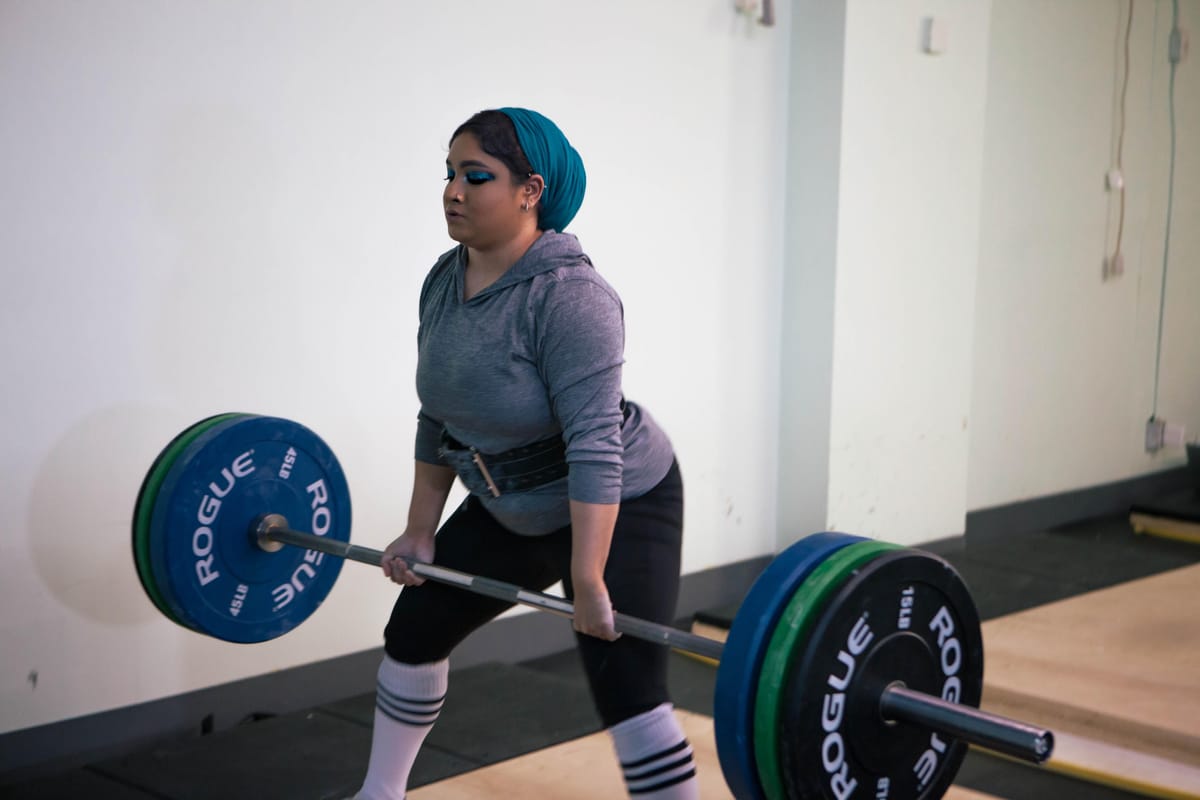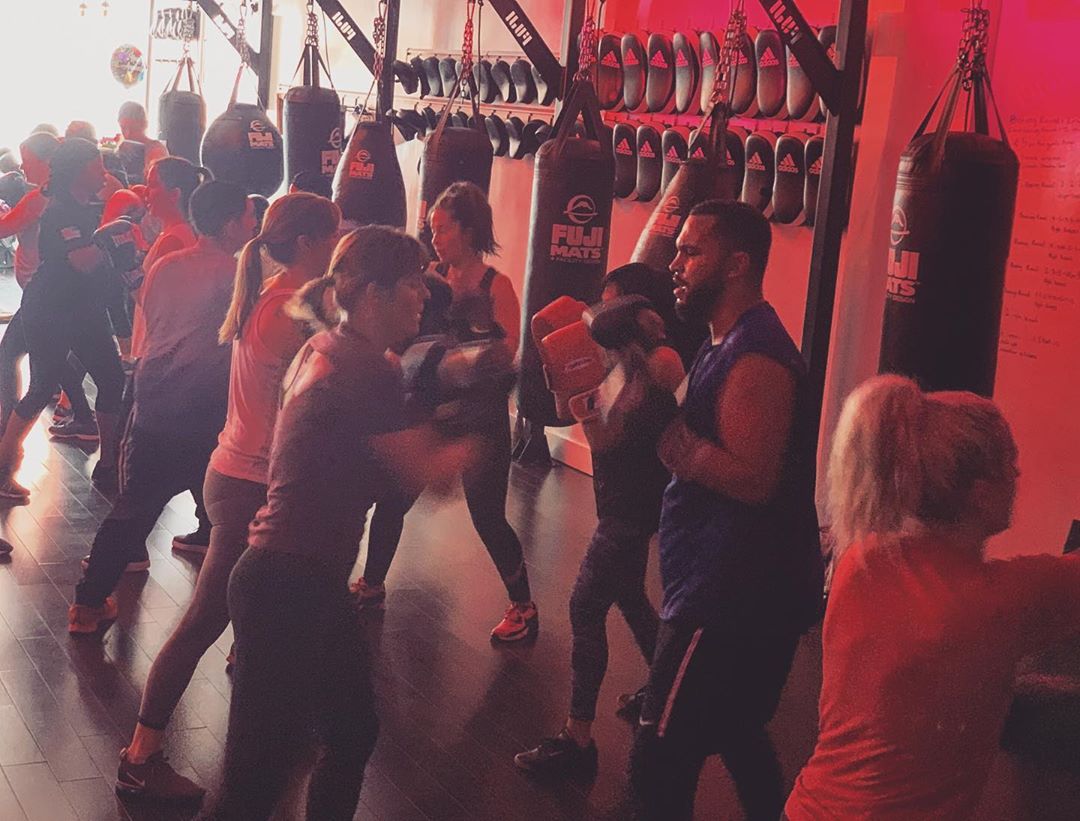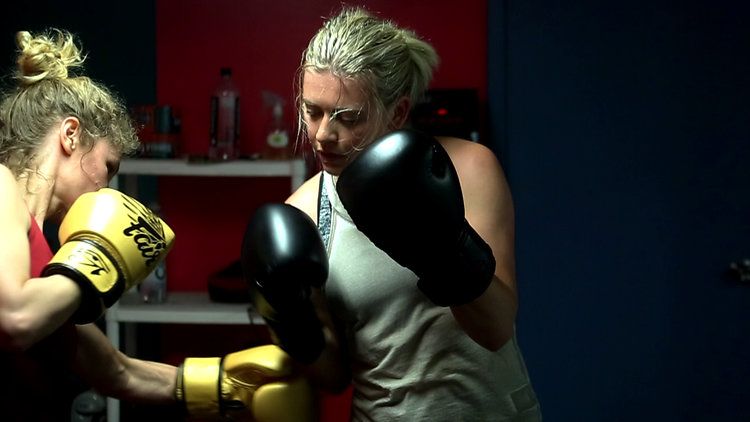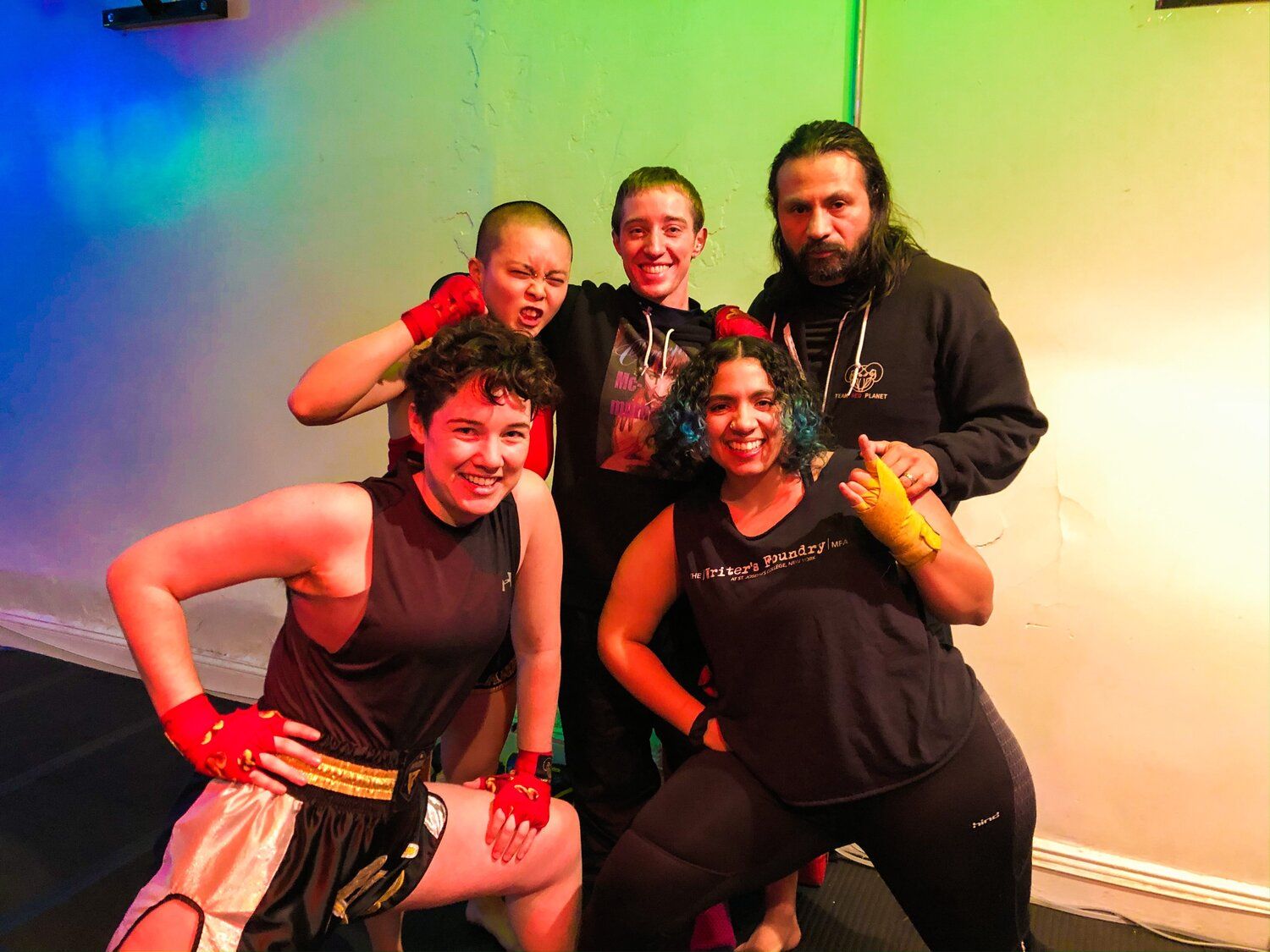A League of Their Own: Inclusive Gyms Are Booming in Brooklyn

Gender equity has become a major conversation since the Women’s March in 2017 and the world of sports is no exception. This year, Katie Sowers of the San Francisco 49ers made NFL history as the first woman to coach in the Super Bowl. And while representation at a national level is essential to social acceptance, these moments begin long before playoffs.
Several Brooklyn-based gyms have actively responded to the call for inclusivity, and are cultivating space for people of all genders to thrive in traditionally male-dominated sports.
We talked to Carrie Schecter of JukeBox, Mario Marin of Red Planet Muay Thai and Shannon Kim Wagner, executive director of Strength For All about what it takes to create a space welcoming to all, and why it’s important.
JukeBox
JukeBox, Brooklyn’s first woman-owned boxing gym, hosted a ribbon-cutting ceremony on February 4, exactly one year after their soft-opening. Carrie Schecter is a fighter, in every sense of the word.
The Brooklyn native told us how a stranger’s kindness when she was homeless changed her life. While hopping Greyhound buses with no money in her pocket and a single pack of sunflower seeds, Schechter met a fellow traveler who was hungry. So she shared her food.
A stranger noticed the gesture, approached Schechter, and handed her a $100 dollar bill. “He said, ‘Go try and change your life, or spend it on drugs. It’s your call,’” Schechter recounted. “I never saw him again. But I got to Arizona, where I met my boyfriend… we got a hotel room, cleaned ourselves up, and had jobs within 24 hours… I’ll never forget that moment.”
After getting on her feet, the fighter began working as a celebrity and fashion photographer. Along the way, she discovered Thai Boxing in 2011. The sport fit perfectly with her life philosophy.
“You’re going to get knocked down. It’s how you react — the pattern must be to get back up,” Schechter says with a smile. “That’s why I love burpees.”

This newfound passion empowered her to begin coaching, first through her program Rise, in 2014, and then at Overthrow Boxing Club three years later. Then in 2019, Schechter found herself with a mirrored, life-changing opportunity: a vacant retail space in Park Slope, with the first month’s rent and security deposit gifted by a fellow fighter.
“There was no other option but to do it,” Schechter definitively stated.
Councilmember Brad Lander of Park Slope, joined the ceremony — he kickboxes at Jukebox.
“I know firsthand what a gem JukeBox is for the Park Slope community and beyond,” Lander told us. “Carrie is a dynamite instructor and I encourage everyone to give kickboxing a try, you may surprise yourself!”
Yet being a woman in boxing has its challenges.
“It’s a boys club,” Schechter says. “And we catch a lot of flack.”
While plenty of men have left the gym upon learning it was run by Schechter, the coach maintains a positive outlook, responding with, “That’s great! Thank you for editing yourself out.”
However, gender-integration is important for Schechter’s vision of JukeBox, which is why the gym doesn’t offer any women-only classes.
“I love being around my own tribe, I feel strong with [women boxers],” she said. “But this world has to get along together.”
Red Planet Muay Thai

Red Planet Muay Thai also prioritizes inclusivity, though it’s owned by a man. While the programming has evolved since opening in 2017, owner Mario Marin continues to integrate identity-specific classes to broaden and strengthen the Bedford Stuyvesant based team — including Women’s Muay Thai and Gay Fight Club.
“I learned that it’s important to have community leaders,” Marin told us.
One of these fighters is McSherry, who just participated in their second smoker event — a fight with referees that maintain full Muay Thai rules, though no winner is announced at the end.
“Mario has had an involvement in the local community, and saw that this was a need that could be served,” McSherry tells us. “As an out, trans and queer person, he asked ‘would you want to help me offer this to the community?’”
After attending Red Planet for a year, McSherry began by leading a strength and flexibility cross-training course, before joining the coaching team of Gay Fight Club — a class offered three times a week for LGBTQ+ people.

“There’s the obvious benefits for having safe comfortable access,” McSherry tells us. “And then also members of the greater local community are able to have positive contact with the queer community and bond over this shared love of sport.”
Incorporating specific class offerings for women and queer fighters has proven beneficial to the Red Planet team as a whole.
“I’ve been to a lot of gyms where there’s such toxic masculinity — that I totally can relate to, because I came from that. This helped me to put a mirror in front of myself,” Marin elaborates. “I didn’t want my gym to be a toxic place. I don’t like that kind of environment. So the program keeps this place clean — emotionally and spiritually… It’s worked out very well in that sense.”
Strength For All
Shannon Kim Wagner, executive director of Women’s Strength Coalition the governing non-profit for Bushwick-based gym Strength For All, has another approach to combat toxic culture in sports — preparation.
“You need to have policies upfront that protect your staff and gym members from discrimination of any kind,” Wagner tells us. “If you don’t have those in place, when something happens you’ll be left twiddling your thumbs, instead of having a correct course of action to right the wrong.”
While open to all, Strength For All adheres to a system of specific community agreements that athletes are required to read and sign upon joining the facility. These agreements include respecting pronouns, refraining from discriminatory or shaming language, adhering to consent of photography, and detailing the gym’s zero-tolerance policy for harassment. Taking these steps ahead of time creates an inclusive, safe space for everyone involved.
Women’s Strength Coalition was conceived in January 2017, when Wagner attended the Women’s March on Washington. After recognizing the need for community action, she organized a powerlifting competition to support Planned Parenthood, raising over $14,000 for the nonprofit. The movement gained momentum, leading to an international campaign for Reebok, which provided the funds to open their first Bushwick-based weightlifting gym, Strength For All, in March 2019.

Sayeeda Chowdhury, program manager at Strength For All, lifted in the inaugural competition only three months after picking up her first barbell.
“When I started to lift weights, I was so nervous to walk into the gym. Because it never felt like a welcoming space,” Chowdhury recalled. “I never saw anyone who looked like me — wearing a hijab.”
This perspective inspired Chowdhury to co-host educational events, including Muslim Women Learn to Lift. Strength For All also hosts other intersectional events such as Pull for Pride, Black Girls Lift, and Fuerza Latina — in addition to their open programming and regular gym access.
“We pride ourselves on being a space for all people,” Chowdhury said. “It’s one thing when a space is inclusive, diverse, and available to all. It’s another thing when a space is created with [the marginalized] in mind.”




